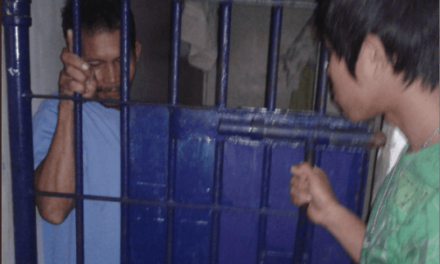Stand for the peasants of the south
Confront the Agribusiness of the north
Confront the Agribusiness of the north
We, representatives of agrarian communities, social movements, women’s groups, Dalit groups and other civil society organisations in India gathered in New Delhi on 15 March 2005 to deliberate on "A Peoples Agenda for the G-20" resolved to place the following resolution before the Ministerial Meeting of the G-20.
Recalling with pride the historic success achieved by the people’s movements at the Seattle and Cancun Ministerial meetings of the WTO in 1999 and 2003 respectively;
Recognising that over the years the incidence of farmers’ suicides in India and other developing countries has shown an alarming increase and the deepening and complex economic and social crisis in the farming sector is largely a result of the approach underlying the AOA framework.
Acknowledging the significance of the emergence of the G-20 in the context of the Cancun Ministerial of the WTO Welcoming the forthcoming G-20 Ministerial Meeting at New Delhi on March 18, 2005
We urge the G-20 Ministers to take note of our concerns and adopt a people’s agenda as elaborated below for their deliberations and decisions.
We are convinced that the July framework agreement adopted in July 2004
1) maintains or expands the key mechanisms of "domestic support" or subsidisation of EU and US agriculture, the so-called Blue Box and Green Box;
2) creates a new restrictive category-that of "sensitive products"-to hamper market access for developing country products;
3) makes only conditional commitments to eliminate export subsidies;
4) pays lip service to the developing countries demands for the designation of "special products" and other forms of special and differential treatment and
5) Extracts market opening commitments from developing countries in agriculture as well as in NAMA (Non Agricultural Market Access) and Services.
We believe that the WTOs Agreement on Agriculture (AOA) is predicated upon the preservation and perpetuation of the domination of the agribusiness of the North. It was conceived and crafted in the interest of temperate zone, large scale, capital intensive, trade oriented, agribusiness centered, peasant insensitive and mass livelihood threatening agriculture.
In India and as in most of the G-20 countries, agriculture is the main source of livelihood for majority of the people. The process of integrating developing country agriculture with the world agriculture market is already proving disastrous for poor and vulnerable peasantry. Thousands of farmers, many of them among the world’s poorest people, have lost their livelihoods as a result of this process of integration. The agrarian distress has reached serious proportions and the food security of billions of people is endangered.
The AOA paradigm visualises a kind of "final solution" to the agrarian question through the virtual extinction of the 3 billion strong peasantry of the third world. The functioning of the AOA so far and the manoeuvres witnessed during the pre and post Cancun period leave little doubt that the apparent moves by the US and the EU accepting a measure of discipline on export subsidies and domestic support are only a smokescreen to camouflage the prime objective of the so called global discipline on agriculture which is to capture the markets of the third world and to render the third world countries totally dependent on agribusiness of the North. This is being refurbished through the enforcement of the global discipline on protection of Intellectual Property Rights whose scope now extends to seeds, plant varieties, micro organisms, microbiological and non-biological processes of production of plants and animals. What is worse, the smokescreen is being used as a lever to extract concessions from developing countries in NAMA and the services areas of the negotiations.
This is unacceptable. It is time that peasants of the third world unite to expose this nefarious game. It is time that they repudiate the AOA paradigm and compel their governments to explore afresh an agriculture trade agreement derived from the basic objective of protecting and furthering the interests of their peasantry and preserving the food sovereignty of their peoples. Such an agreement should be part of a wider paradigm of economic cooperation among developing countries.
We therefore demand that the G-20:
1) Reject the July framework as the basis for agricultural talks in the run-up to the December 2005 Hong Kong Ministerial Meeting for the reasons stated earlier
2) Call upon Brazil and India to leave the non-inclusive grouping of the Five Interested Parties (FIPs) and work towards the disbanding of the FIPs. Instead they should work towards the consolidation of G-20 and its close coordination with G-33 and G-90 with a view to evolving strategic solidarity of the South as a whole in the WTO negotiations not only on agriculture but also in NAMA and Services.
3) Insist on the developing countries right to use Quantitative Restrictions (QRs) to selectively de-link their agrarian economies from the paradigm of AoA. Such a right must be built into the AoA in the same way as the right to use QRs was built into the GATT in order to enable the developing countries to secure their external financial position.
4) Launch forthwith a collective exercise to fashion an arrangement for promoting inter se agricultural trade of developing countries. It should be informed by the philosophy, approach and modalities of the Global System of Trade Preferences (GSTP) among developing countries. It should be derived from the basic objective of protecting and furthering the interests of their peasantry and preserving the food sovereignty of their peoples. It should explicitly take on board diverging tendencies and interests of all developing countries.
5) To be transparent in the negotiations and to take elected representatives, agrarian communities, social movements and other civil society groups into confidence at all stages in the discussions.
For achieving our objectives as set out above, we resolve to work with like minded groups and movements in the run-up to the Hong Kong Ministerial Meeting of the WTO.
If your organisation wishes to sign on to this statement please write to Benny Kuruvilla








